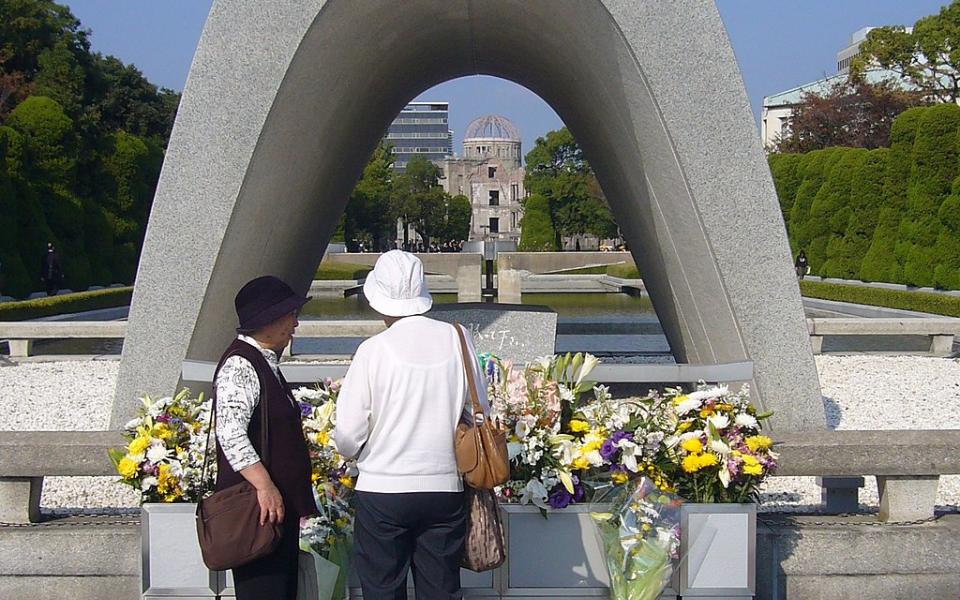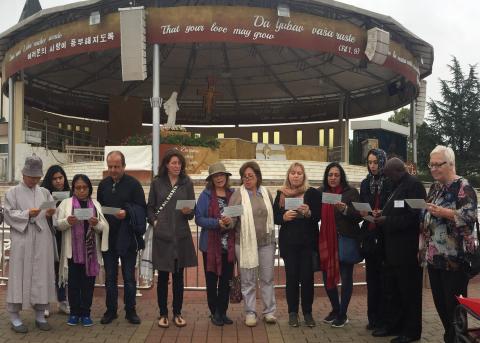
Hiroshima Peace Memorial (Genbaku Dome) - Image by Giovanni Boccardi via Wikicommons
Having been shaken into resolve because of the atomic bombing of Hiroshima and Nagasaki, most nations of the world signed an agreement at the United Nations on June 12, 1968, declaring “…the further goal of achieving nuclear disarmament and general and complete disarmament.” This is as close as the world gets to creating Holy Writ about banning a final apocalypse. The document is called “The Non-Proliferation Treaty (NPT).” Clearly, the leading nations of the world committed to denuclearization. 50 years ago!
So, downstream by half a century, how are we doing in living into the intent of the Non-Proliferation Treaty? Answer: We haven’t destroyed the planet, and the two big nuclear powers have seriously reduced the number of their warheads. At the same time, nuclear bluster and ever more powerful weapons have the world in high anxiety. Ultimately, we might consider the NPT to be a game of “bait and switch.”
Ultimately, we might consider the NPT to be a game of “bait and switch.”
For instance, last October, Vladimir Putin asked, “Does Russia want universal nuclear disarmament?” And he said that the “answer is yes.” A few months later, he announced that Russia now has a new generation of invincible new intercontinental ballistic missiles. In the United States, which espouses reduction and elimination of the weapons, President Trump vows to modernize America’s nuclear weapons to lead the pace of worldwide escalation. The NPT is the lofty “bait,” while real nuclear proliferation is the “switch.”
Whatever happened to the intent of denuclearization? To conforming to the commitment of the Non-Proliferation Treaty? Today, much of the world is breathless in its cry for a nuclear-free Korean Peninsula and for dissuading Iran from possessing nuclear weapons. The word “denuclearization” has great meaning when applied to tiny threats but when applied to the existential threat of total annihilation of this world, denuclearization is a buried topic.
Will the Non-Proliferation Treaty achieve its goals or will the lust for nuclear supremacy thrust all living beings into oblivion?
Will the Non-Proliferation Treaty hit the century mark in the year 2068 and achieve its goals or will the lust for nuclear supremacy thrust all living beings into oblivion? Here are four survival, NPT-type ways of thinking that will be necessary for our future.
- First, we must develop a way of allowing global security to be prized above national security. Thermonuclear damage does not respect national borders. The only hope for the world is that the nuclear nations discover a genuine global vocation of nuclear restraint and cooperation. Denuclearization is security.
- Second, we must learn to see the picture of our nuclear consequences. If we can’t picture the damage that we are threatening to unleash, then there is no hope of stopping it. Seeing the consequences on all humans, all animals, all the environment, all the beauty! Seeing is believing in denuclearization.
- Third, we must take this personally, as citizens of a nuclear nation. “He who lives by the sword, dies by the sword.” We, with nuclear buttons at our fingertips, are most likely to die of “friendly fire” from radiation that we produce, store, bury and transport around our country. Protecting our home requires denuclearization.
- Fourth, we must learn to tell time. The earth has been free of nuclear weapons for 4.5 million years. At present, nuclear nations have not blown up the world in the past 73 years although we could have. We can either gamble on the track record of a nuclear-free world or our track record of 73 years, and counting, of constant nuclear modernization. Denuclearization is about time.
June 12, 2018, is the 50th Anniversary of the Non-Proliferation Treaty. It carries the hope of the world.
